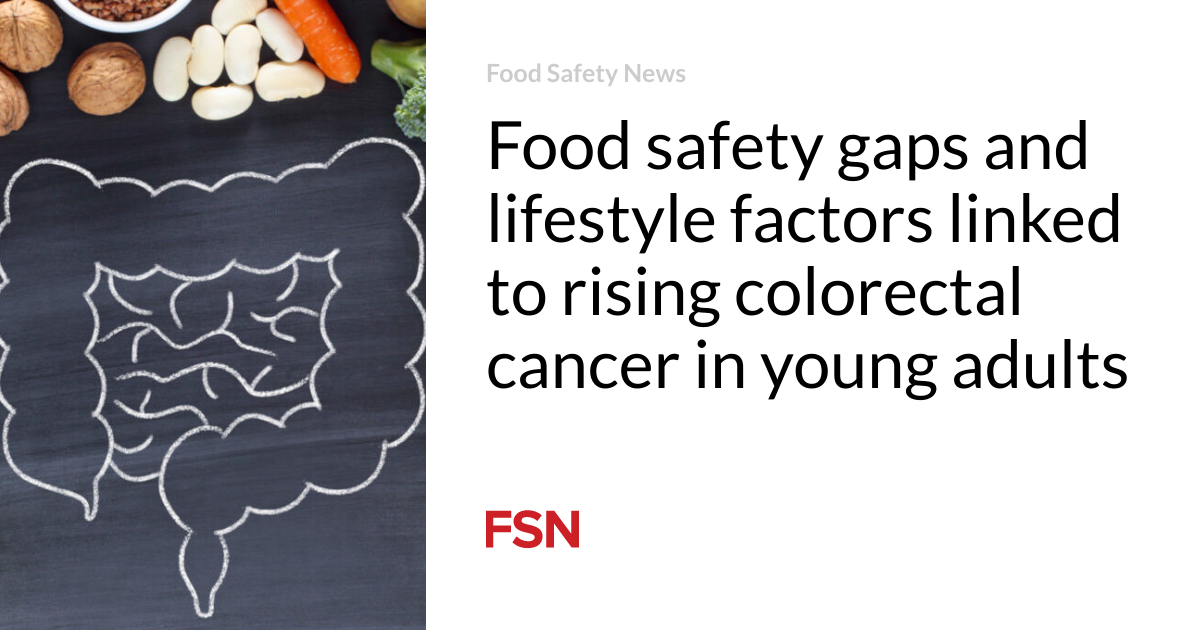Young, Healthy, and at Risk: The Shocking Diet and Lifestyle Trends Fueling Colorectal Cancer
Lifestyle
2025-04-28 04:02:00Content

A startling trend is emerging in the medical community: colorectal cancer is increasingly striking younger adults, sparking urgent conversations about diet, lifestyle, and environmental factors. This alarming rise has prompted researchers and healthcare professionals to delve deeper into understanding the complex web of potential causes behind this concerning health phenomenon.
The surge in early-onset colorectal cancer challenges previous assumptions about the disease, traditionally viewed as primarily affecting older populations. Young adults are now facing a health risk that was once considered rare, raising critical questions about modern lifestyle choices, nutritional habits, and potential hidden environmental triggers.
Experts are intensifying their research to unravel the intricate connections between diet, food safety, and cancer development. From processed foods to environmental toxins, every potential factor is under scrutiny as scientists seek to understand why more young people are being diagnosed with this serious health condition.
This emerging trend serves as a powerful reminder of the importance of preventive health measures, early screening, and maintaining a holistic approach to personal wellness. As the medical community continues to investigate, individuals are encouraged to be proactive about their health, paying close attention to diet, exercise, and regular medical check-ups.
The Silent Epidemic: Unraveling the Young Adult Colorectal Cancer Crisis
In recent years, medical researchers and healthcare professionals have observed a disturbing trend that challenges traditional understanding of colorectal cancer demographics. The emergence of an alarming increase in colorectal cancer diagnoses among younger adults has sparked intense scientific investigation and public health concern, demanding a comprehensive examination of potential underlying factors.Decoding the Unexpected Rise: A Health Phenomenon Demanding Attention
Shifting Diagnostic Paradigms: Understanding the Emerging Trend
The conventional wisdom surrounding colorectal cancer has been fundamentally disrupted by recent epidemiological data. Historically considered a disease predominantly affecting older populations, the dramatic surge in cases among individuals under 50 represents a seismic shift in medical understanding. Researchers are now compelled to investigate the complex interplay of genetic, environmental, and lifestyle factors that might be driving this unprecedented transformation. Sophisticated molecular studies suggest that younger patients exhibit distinct genetic mutations and cancer progression patterns compared to traditional demographic profiles. These nuanced differences hint at potentially unique mechanisms underlying the disease's development, challenging long-established diagnostic and screening protocols.Nutritional Landscape and Metabolic Influences
Contemporary dietary patterns have emerged as a critical focal point in understanding the escalating colorectal cancer rates. The modern food ecosystem, characterized by processed ingredients, high-sugar content, and reduced nutritional diversity, potentially contributes to metabolic disruptions that may accelerate cancer development. Emerging scientific evidence indicates that dietary choices significantly impact gut microbiome composition, inflammatory responses, and cellular metabolism. The intricate relationship between nutritional intake and cancer risk represents a complex web of interactions that demands sophisticated, multidisciplinary research approaches.Lifestyle Factors and Environmental Considerations
Beyond nutritional elements, contemporary lifestyle patterns present a multifaceted landscape of potential cancer risk factors. Sedentary behaviors, chronic stress, environmental toxins, and disrupted sleep cycles potentially contribute to cellular mechanisms that increase cancer susceptibility. Advanced epidemiological research suggests that younger generations face unprecedented environmental challenges, including increased exposure to endocrine-disrupting chemicals, microplastics, and chronic psychological stressors. These factors may interact synergistically to create a complex risk environment that accelerates cancer development.Genetic and Molecular Insights
Cutting-edge genetic research has unveiled intricate molecular pathways that might explain the rising colorectal cancer incidence among younger populations. Advanced genomic sequencing techniques have identified specific genetic variations and epigenetic modifications that could predispose individuals to earlier cancer development. Precision medicine approaches are increasingly focusing on personalized risk assessment, leveraging sophisticated genetic screening and predictive modeling to identify high-risk individuals before clinical manifestations emerge. These innovative strategies represent a paradigm shift in proactive healthcare management.Psychological and Societal Implications
The unexpected rise of colorectal cancer among younger adults extends beyond medical considerations, encompassing profound psychological and societal dimensions. Diagnosis at a younger age disrupts traditional life trajectories, challenging patients' personal, professional, and familial expectations. Healthcare systems must evolve to provide comprehensive support mechanisms that address not only medical treatment but also psychological resilience, social integration, and long-term quality of life for affected individuals.Future Research and Prevention Strategies
Addressing this emerging health challenge requires a holistic, interdisciplinary approach. Collaborative research initiatives spanning medical disciplines, environmental sciences, and public health policy are essential to developing comprehensive prevention and intervention strategies. Investments in advanced diagnostic technologies, population-wide screening programs, and targeted educational campaigns represent critical components of a proactive response to this complex health phenomenon.RELATED NEWS
Lifestyle

Breaking Barriers: Rhia Stawicki's Fierce Journey in Sports Empowerment
2025-03-15 23:47:33
Lifestyle

Family Feud: When Cousin's Controversial Choices Strain Unconditional Support
2025-03-02 12:00:00






